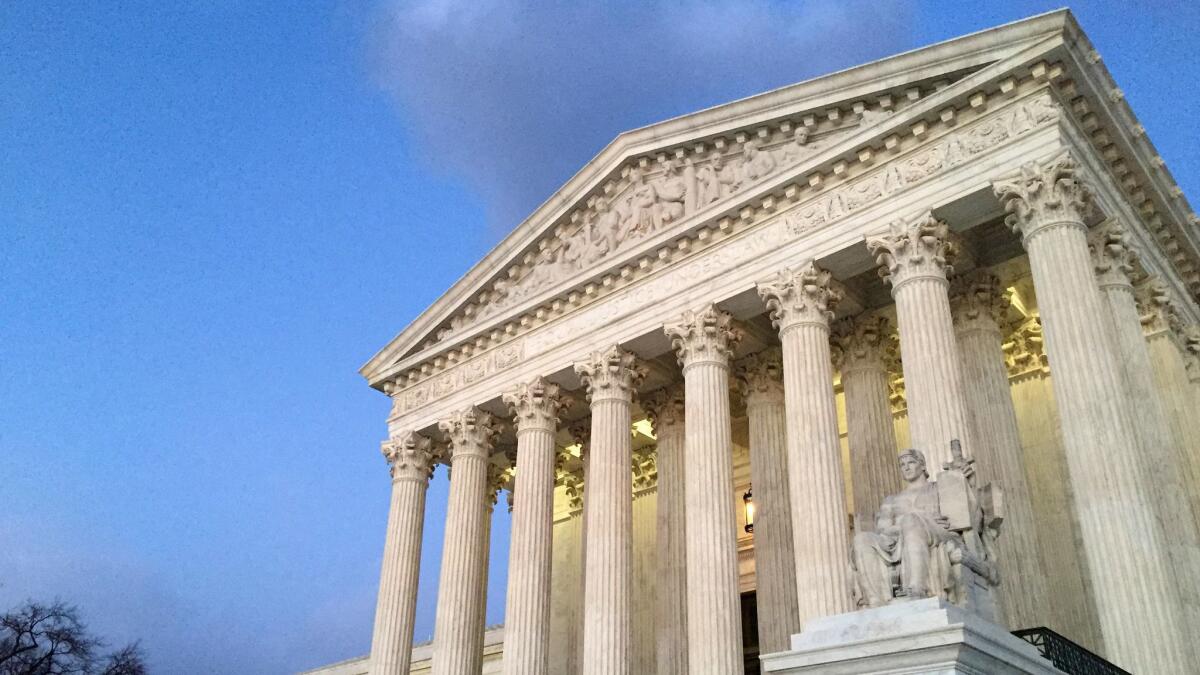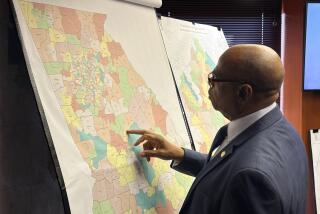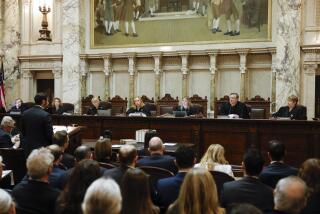Opinion: People who draw district lines should not have access to party registration numbers

To the editor: Yes, gerrymandering has gone on for centuries and it will continue as long as politicians in state legislatures draw the lines for political districts. (“At what point does politics-as-usual become unconstitutional?” June 20)
Following the 1970 census, the state of Washington’s legislature was deadlocked over redistricting. In 1972, federal courts took over that state’s redistricting and gave a geography professor at the University of Washington the maps and population data to draw new boundaries.
The maps showed natural boundaries like rivers and mountains as well as political boundaries like cities and counties. There were no data on party affiliation. The professor drew Washington’s districts based on natural boundaries where possible; he was completely unbiased, so neither party could object.
Every state should require that their districts be drawn without access to partisan data and put an end to gerrymandering once and for all.
John Jensen, Torrance
..
To the editor: The U.S. should stop gerrymandering too. One of the worst examples of gerrymandering has been perpetrated by our own Census Bureau that distorts fair and equitable apportionment of congressional districts by what is now called “prison gerrymandering.”
For the 2020 count, the Census Bureau will continue to count incarcerated people as “usual residents” of prisons in which they are incarcerated rather than at their home addresses.
This method of counting distorts state and federal legislative districts, upsets the balance of power and under-represents minority populations in communities across the country. It leads to inaccuracies in counts of rural and urban communities and disenfranchises large blocks of African American and Latino voters while undermining the redistricting process in states across the country.
With more than 2 million Americans incarcerated, the definition of “usual residence” should be the address to which an inmate will return upon release, not the institution in which the person is temporarily housed.
Carole Urie, Laguna Beach
Follow the Opinion section on Twitter @latimesopinion and Facebook
More to Read
A cure for the common opinion
Get thought-provoking perspectives with our weekly newsletter.
You may occasionally receive promotional content from the Los Angeles Times.






